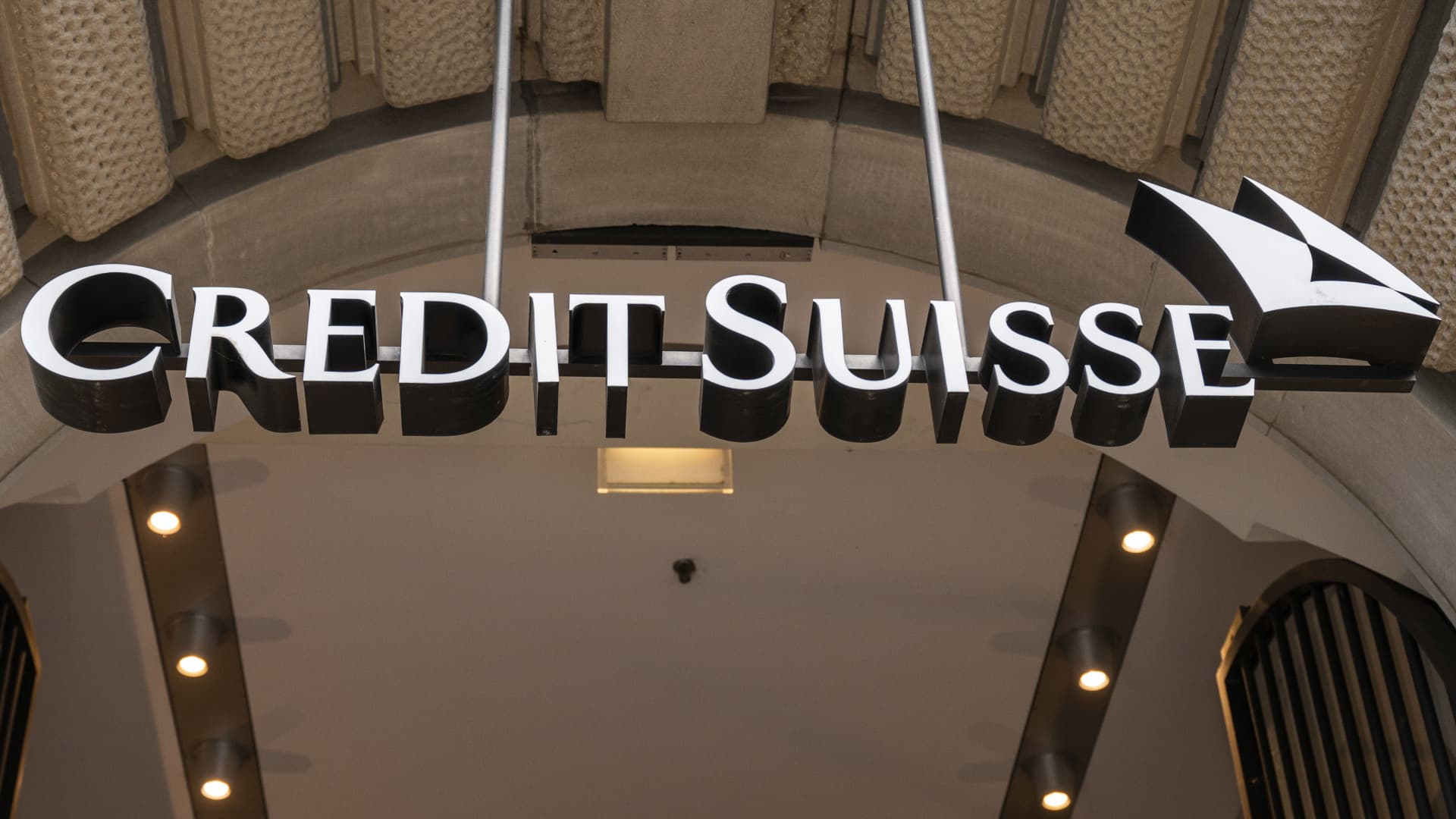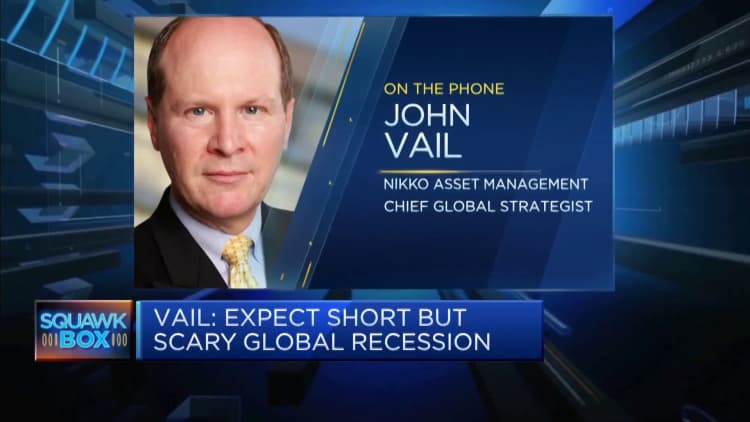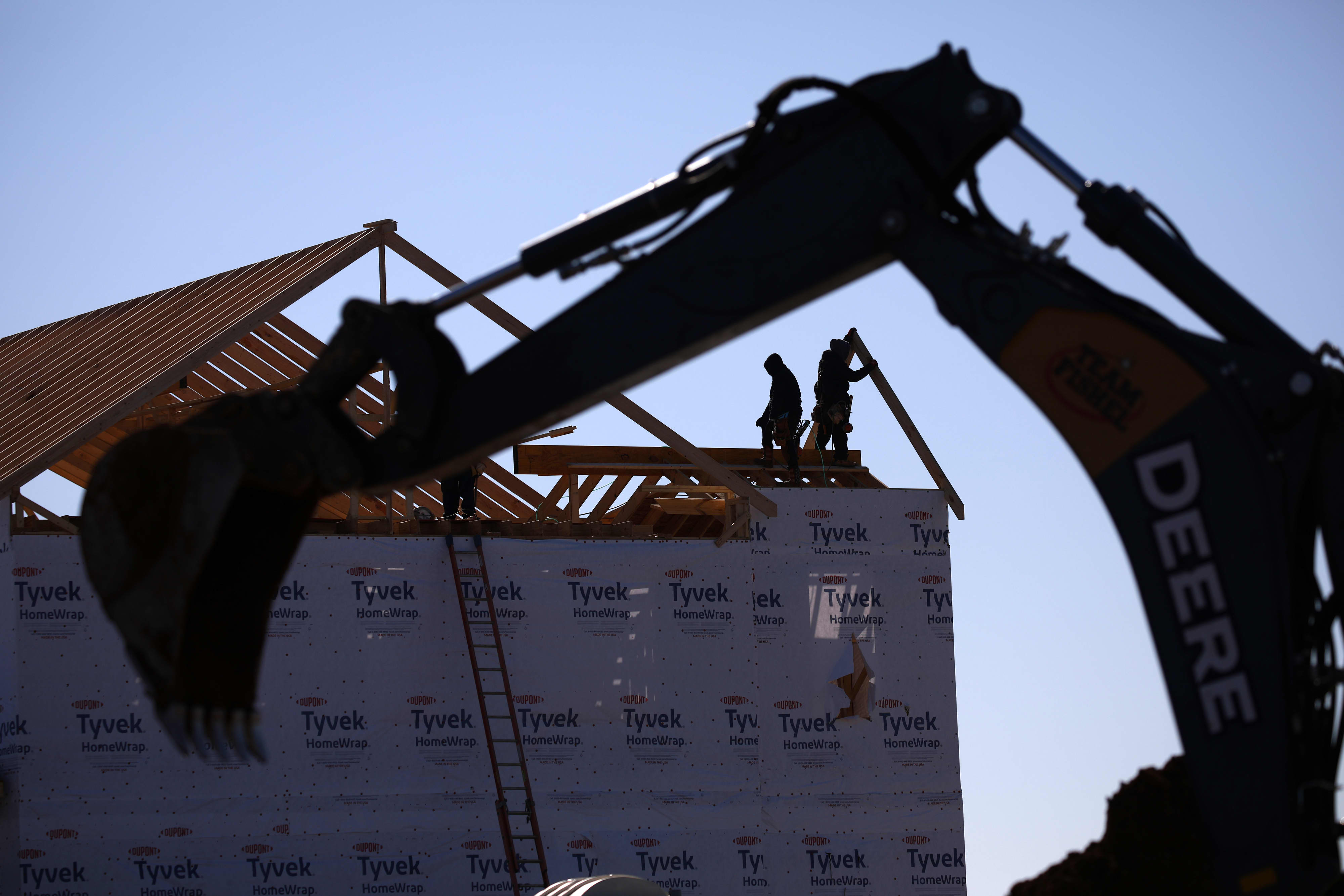
Worries are mounting over Credit Suisse’s financial health — but that doesn’t mean markets are headed toward a “Lehman moment,” said the president of Sri-Kumar Global Strategies.
“I think the Federal Reserve is going to have to face the consequences of a credit event” if it were to occur, Komal Sri-Kumar told CNBC’s “Squawk Box Asia” on Monday. “Something is going to break.”
related investing news
“This may or may not be a Lehman moment,” he said, referring to the collapse of Lehman Brothers in 2008, which triggered a string of big Wall Street bailouts and a subsequent financial crisis.
Over the weekend, several media outlets reported that Credit Suisse sought to assuage investors’ concerns over its financial health — the Swiss bank reportedly contacted its biggest clients after its credit default swaps rose sharply.
CDSs are essentially insurance bets against defaults and a credit event refers to a negative and sudden change in the borrower’s ability to repay its debt.
A long-time critic of the Fed’s approach to the rise of prices, Sri-Kumar said the latest events surrounding Credit Suisse shows the “real danger of having miscalculated inflation for such a long time.”
“They are trying to make up for it by doing everything in a hurry,” he said, referring to the Fed’s continued hawkish policy and pledge to continue hiking interest rates to tamp down on inflation.
In the Fed’s latest monetary policy meeting in September, the central bank raised its benchmark rate by three-quarters of a percentage point and indicated it will keep raising rates well above the current level.
Sri-Kumar said such attempts at controlling inflation is dangerous for markets worldwide.
“It carries an enormous amount of risk to the global system in terms of what the various central banks are doing,” he said.

The latest reports of Credit Suisse’s actions to calm concerned investors could point to an eventual shift in the Fed’s direction, said John Vail, chief global strategist at Nikko Asset Management.
“The silver lining at end of this period, is the fact that central banks will probably start to relent some time as both inflation is down and financial conditions worsen dramatically,” he said on CNBC’s “Squawk Box Asia” Monday.
“I don’t think it’s the end of the world, but it could get scary for the next quarter or so,” he said.


